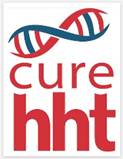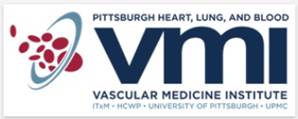What Does HHT Stand For?
HHT stands for hereditary hemorrhagic telangiectasia. Some also call it Osler-Weber-Rendu syndrome after the doctors who first described this disease.
Hereditary: A disease that can be passed on from generation to generation.
Hemorrhagic: Prone to bleed (most often from the nose or GI tract).
Telangiectasia: Malformed tangles of small blood vessels —most often on the skin and nose. Arteriovenous malformations (AVMs) are larger malformed blood vessels.
What Causes HHT?
HHT is a genetic disease. It happens when a person inherits a mutated gene from his or her parents.
Genes contain the “blueprints“ or instructions for the body to make proteins. If the blueprints contain errors (called mutations), the body can't make the proteins properly.
In HHT, an error in your genetic blueprints causes you to produce a single defective protein. That defective protein leads to the development of abnormal blood vessels.
If you inherit the gene, then you will get HHT
If you do not inherit the gene, you will not get HHT.
What Are the Symptoms of HHT?
Symptoms of HHT may include:
- Nosebleeds.
- Red spots on your skin — most often on your fingers, hands, and face.
- Shortness of breath, from either anemia or vascular malformations in the lung or liver.
How Do You Diagnose HHT?
To diagnose HHT you will need to have a complete history and exam by a doctor who has knowledge about HHT.
At the HHT Center of Excellence of UPMC and the University of Pittsburgh, we use the Curacao criteria to assess your likelihood of having the disease.
If you meet two or more criteria, we may advise genetic testing to see if you have a mutation in one of the HHT disease genes.
Genetic testing isn't perfect because there may be undiscovered genes that cause HHT. Between 10 and 15 percent of people with HHT can have negative genetic test results.
What is Genetic Testing for HHT?
We use a small needle to draw a sample of blood from your vein. This causes slight discomfort.
We isolate the genetic material (DNA) from the blood and send the sample to a specialized lab for analysis.
The lab will study the genes that cause HHT — endoglin, ACVRL-1, or SMAD-4 — for abnormalities (called mutations).
Does My Insurance Cover HHT Testing?
Most health insurers cover HHT testing, but not always. In most cases, we must obtain your insurer's approval before testing.
You may still have a co-pay, depending on your plan. You should check with your insurance to find out the cost to you.
The CPT codes are:
- 81404, 81405x2, and 81406: Sequencing of ENG and ACVRL-1 with reflex to deletion/duplication analysis.
- 81406: Sequencing of SMAD 4.
- 81403: Testing for family mutation
Should I Tell My Family if I Test Positive for HHT?
Yes. If you test positive for HHT, we recommend that your parents, brothers, sisters, and children undergo an evaluation at an HHT Center of Excellence.
We can test family members for the family mutation. If they have the mutation, or if they have HHT by Curacao criteria, we can screen them for vascular malformations of the lung or brain in an effort to prevent strokes or bleeding in the brain.
What Are the Chances My Children Will Have HHT if I Have It?
HHT is an autosomal dominant disease.
Everyone has two copies of each gene. You pass on one of the two copies to your child.
If you have one abnormal copy of an HHT-associated gene (endoglin, ACVRL-1, or SMAD-4), you have HHT.
If you have HHT, each child has a 50-percent chance of inheriting the HHT gene and getting HHT.
Do People With HHT Have a Normal Life Span?
Yes. As long as we find and treat any lung or brain AVMs, people with HHT have a normal life expectancy.
What are My Chances of Having HHT Complications?
There are some differences in HHT risks, depending on your specific mutation.
In general, the following outlines the percentage of people with HHT who have complications.
| 90-95% |
Telangiectases |
| 90-95% |
Nosebleeds |
| 30-40% |
Lung arteriovenous malformations (AVMs) |
| 20-25% |
Bleeding in the GI tract |
| 5-20% |
Brain AVMs |
| 10% |
Symptomatic liver AVMs |
| 1% |
Spinal AVMs |
People with SMAD-4 may develop multiple polyps in the GI tract (called juvenile polyposis).
Can I Have Children if I Have HHT?
Yes. Women with HHT can have children.
Before getting pregnant, you should have a screening for lung and brain AVMs and, if present, have them treated.
During pregnancy, you can have these screenings in your second or third trimester.
We urge treatment of lung AVMs prior to delivery.
Are There Any Special Precautions Someone With HHT Needs to Take?
Yes.
If you have lung AVMs — even if you've had treatment — be sure to:
- Take antibiotics prior to dental procedures (including routine cleaning). You should discuss this with your doctor.
- If you receive intravenous therapy, have a nurse place a filter on IV tubing to prevent the infusion of small air bubbles. The best is a 0.2-micron filter when possible.
Finally, people with HHT should avoid scuba diving due to stroke risk from air emboli.
References
- Cure HHT
- Bayrak-Toydemir, P, Rong, M, Lewin, S, McDonald, J. Hereditary hemorrhagic telangiectasia: An overview of diagnosis and management in the molecular era for clinicians. Genetics in Medicine 2004; 6:175-191.
- Begbie, M, Wallace, G, Shovlin, C. Hereditary haemorrhagic telangiectasis (Osler-Weber-Rendu syndrome): A view from the 21st century. Postgrad Med J 2003; 79:18-24
- deGussem, E, et al. Outcomes of pregnancy in women with hereditary hemorrhagic telangiectasia. Obstet Gynecol 2014; 0:1-7.
- Faughnan, M, et al. International guidelines for the diagnosis and management of hereditary haemorrhagic telangiectasia. J Med Genet 2011; 48:73-87.
- McDonald, J, Bayrak-Toydemir, P, Pyeritz, R. Hereditary hemorrhagic telangiectasia: An overview of diagnosis, management, and pathogenesis. Genetics in Medicine 2011; 13: 607-616.
- Shovlin, C, et al. Diagnostic Criteria for Hereditary Hemorrhagic Telangiectasia (Rendu-Oslerp-Weber Syndrome). Am J Med Genet 2000; 91:66-67.


















